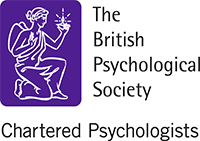Sex Addiction CPD Workshops.
This is the tenth run of this well-rated workshop.
Sex Addiction: A relational approach to assessment, formulation, and intervention.
~ Workshop presented by Dr Robert Watson, Clinical Psychologist in Sexual Health, Accredited Cognitive Analytic Therapist & Supervisor.
~ This workshop will be run online until further notice due to Covid-19.
Dates of next workshops:
Online Webinar:
~ Friday 26th November, 2021, £75.
Rated excellent or good by all participants from the previous nine events, delegates liked:
“Everything – I feel a learnt a lot, very informative and knowledgeable. I feel more prepared to work with clients who may bring sex into a session and was helpful to learn ways in which Robert might work with someone.”
“The emphasis placed on exploring the hidden feelings behind actions and considering what might be useful therapeutic approaches.”
“I think that it is refreshing and important to go on training that conceptualises perceived sex addiction within the more biopsychosocial model as opposed to the more pathologising and unrealistic kicking the habit approach.”
“Very interactive, thought provoking and found the small group work very beneficial”.
~ This workshop is aimed at both qualified and trainee clinical/counselling psychologists, psychiatrists, GUM/HIV specialists, psychotherapists and counsellors who wish to develop their clinical skills in this area of work and/ or deepen their relational understandings of the issues relevant to this client group.
~ On one level, addiction means behaviour that repeats. The core focus of Cognitive Analytic Therapy (CAT) is the formulation of repetitive and hard to break patterns in the way people think, act, feel and relate to others, and therefore CAT offers many useful approaches to the relational assessment, formulation and intervention for sex addiction. Making theory practice links throughout, this workshop will draw on the application of relational formulations and interventions to develop participants clinical skills when working with this client group, including the challenges and dilemmas commonly encountered. While drawing relational ideas from CAT, this workshop will be accessible to therapists working across different modalities, including CBT therapists and no prior knowledge of CAT is needed.
Drawing on clinical material throughout, this workshop covers the principal clinical issues to consider through the stages of assessment, formulation, and intervention. It will highlight the key challenges and pitfalls to avoid during these stages when working with out of control sexual behaviour. Coverage will be given to the specific issues to consider when working with distress associated with “Chemsex” in gay men. Participants will have opportunities to apply what they have learnt with small group exercises during the workshop.
Learning objectives:
- Provide participants with the key questions to consider during assessment, and how to look out for relational issues at first presentation.
- Learn ways to increase client motivation and reduce ambivalence towards change at an early stage.
- Consider the key aims during formulation and intervention, and how to make therapy interfering behaviours the focus of collaborative dialogue.
- Develop clinical skills for identifying and formulating emotional and relational factors associated with addictive sexual behaviour, and how these can be used to inform interventions.
- Facilitate reflection on how to start the process of helping your clients develop an enjoyable and affirming relationship with their sexual desire, enabling clients to express their sexual desires in a way that does not limit or harm them.
Presenter:
Robert Watson is a Clinical Psychologist with 20 years’ experience in Sexual Health and has extensive experience in public and private settings working with clients with complex psychological presentations. He is an accredited CAT therapist and supervisor and was the vice-chair of ACAT for six years. He has been working with clients with out of control sexual behaviour, including gay men affected by “Chemsex” problems, since the beginning of his CAT practice. He has published academic articles and presented at ACAT and COSRT conferences on the issue of Out of Control Sexual Behaviour.



